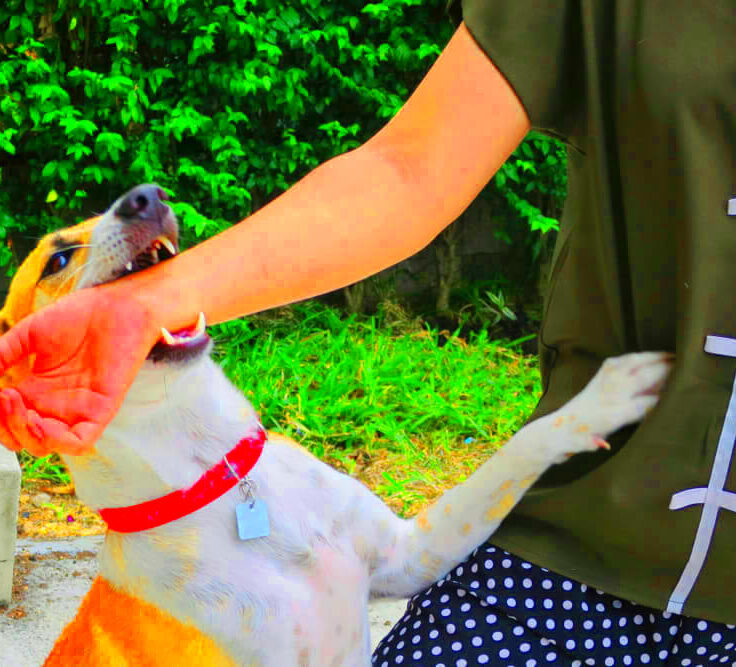Connecticut Dog Bite Laws What You Should Know
In Connecticut, dog bite laws aim to protect victims while holding dog owners accountable. These laws are designed to clarify the responsibilities of dog owners and the rights of victims. If you’ve been bitten by a dog, understanding these laws can help you navigate the legal landscape and seek the compensation you may deserve.
Types of Dog Bite Incidents
Dog bite incidents can vary significantly, and it’s essential to recognize the different types. Here are some common types:
- Owner’s Property: When a dog bites someone on its owner’s property, it often leads to strict liability for the owner.
- Public Spaces: If a dog attacks someone in a public space, the owner may still be held responsible, depending on the circumstances.
- Leash Laws Violation: If a dog is off-leash in an area where it should be restrained, the owner may face liability.
- Provoked Attacks: If the victim provokes the dog, the owner’s liability may be reduced or eliminated.
Understanding these types of incidents can help you assess your situation and determine the best course of action.
Legal Responsibilities of Dog Owners
In Connecticut, dog owners have specific legal responsibilities to ensure public safety. Here are key responsibilities:
- Control: Dog owners must keep their dogs on a leash or contained within their property to prevent attacks.
- Training: Proper training and socialization are essential to prevent aggressive behavior in dogs.
- Warning Signs: Owners should post signs indicating the presence of a dog, especially if it is known to be aggressive.
- Insurance: Many dog owners have liability insurance to cover potential dog bite claims.
If a dog bites someone, the owner may be held liable for damages, including medical bills, lost wages, and pain and suffering. It’s crucial for dog owners to understand these responsibilities to avoid legal repercussions.
Victim Rights After a Dog Bite
If you’ve been a victim of a dog bite in Connecticut, it’s crucial to understand your rights. You may be entitled to various forms of compensation, depending on the circumstances surrounding the incident. Knowing your rights can help you take appropriate action and seek the justice you deserve.
As a victim, here are some rights you should be aware of:
- Medical Treatment: You have the right to seek medical treatment for your injuries without worrying about upfront costs. Many insurance policies cover medical expenses related to dog bites.
- Compensation: You can pursue compensation for various damages, including:
- Medical bills
- Lost wages due to missed work
- Pain and suffering
- Emotional distress
- Legal Representation: You have the right to hire a personal injury attorney who specializes in dog bite cases. They can guide you through the legal process and advocate for your rights.
- Report the Incident: You should report the dog bite to local authorities, as this can help establish a record of the incident and may be necessary for your claim.
Being informed about your rights can empower you to take the necessary steps after a dog bite incident.
How to File a Dog Bite Claim
Filing a dog bite claim in Connecticut involves several steps, and knowing the process can make it easier for you to navigate. Here’s a simple guide on how to file your claim:
- Seek Medical Attention: First and foremost, ensure you receive proper medical treatment for your injuries. Keep all medical records and bills as they will be crucial for your claim.
- Gather Evidence: Collect evidence related to the incident, including:
- Photos of your injuries
- Witness statements
- Any relevant documentation (like medical reports)
- Notify the Dog Owner: Inform the dog owner about the incident. This can often lead to an amicable resolution without going to court.
- File a Claim with Insurance: If the dog owner has liability insurance, you can file a claim with their insurance company. Provide all the necessary documentation to support your case.
- Consult an Attorney: If negotiations with the insurance company don’t go as planned, consider hiring a personal injury attorney. They can help you pursue a lawsuit if necessary.
By following these steps, you can effectively file a dog bite claim and seek the compensation you deserve.
Common Defenses in Dog Bite Cases
In dog bite cases, the dog owner may present various defenses to challenge liability. Understanding these defenses can help you prepare your case if you are a victim. Here are some common defenses used:
- Provocation: If the victim provoked the dog (e.g., by teasing or provoking), the owner may argue that they are not liable.
- Trespassing: If the victim was trespassing on the owner’s property, this may limit the owner’s liability.
- Known Aggressive Behavior: If the victim was aware of the dog’s aggressive tendencies and chose to approach it anyway, this could be used as a defense.
- Comparative Negligence: In Connecticut, if the victim is found partially at fault for the incident, their compensation may be reduced based on their percentage of fault.
Understanding these defenses can help you prepare your case and work with your attorney to counter them effectively. Always remember that every case is unique, and legal advice is vital in navigating these situations.
Importance of Documentation and Evidence
When it comes to dog bite cases, having solid documentation and evidence can make a significant difference in the outcome of your claim. Gathering evidence right after the incident is crucial for building a strong case. Here’s why documentation matters:
Effective documentation can help establish the facts of the case and support your claims. Here are some key types of documentation and evidence to consider:
- Medical Records: Keep all medical records and bills related to your treatment. These documents provide proof of your injuries and the costs associated with them.
- Photographs: Take photos of your injuries as well as the location where the bite occurred. Visual evidence can help illustrate the severity of your injuries.
- Witness Statements: Gather contact information from anyone who witnessed the incident. Witnesses can provide valuable testimony about what happened.
- Dog Owner Information: Collect information about the dog owner, including their name, contact details, and insurance information.
- Incident Reports: If you report the bite to local authorities or animal control, obtain a copy of the incident report.
By keeping thorough documentation, you strengthen your case and increase your chances of receiving fair compensation for your injuries.
Frequently Asked Questions About Dog Bite Laws
Dog bite laws can be complex, and victims often have many questions. Here are some frequently asked questions to help clarify common concerns:
- What should I do immediately after a dog bite?
Seek medical attention, document your injuries, and report the incident to the appropriate authorities. - Can I sue if the dog was on a leash?
Yes, a dog can still bite someone even if it is on a leash. The owner may still be liable, depending on the circumstances. - How long do I have to file a claim?
In Connecticut, the statute of limitations for personal injury claims, including dog bites, is generally two years from the date of the incident. - Will I need to go to court?
Many dog bite cases are settled out of court, but some may require legal action if a fair settlement cannot be reached. - What if the dog owner claims I provoked the dog?
If you believe the dog was unprovoked, gather evidence to support your claim and consult with an attorney for guidance.
Understanding these common questions can help you feel more informed and prepared to navigate the legal process after a dog bite.
Conclusion on Dog Bite Laws in Connecticut
Understanding dog bite laws in Connecticut is essential for both dog owners and victims. These laws are designed to protect the rights of individuals and ensure that responsible parties are held accountable. If you’ve been bitten by a dog, it’s crucial to know your rights and the steps you need to take to seek compensation.
From documenting the incident to understanding the legal responsibilities of dog owners, being informed can help you navigate this challenging situation. Always consider consulting with a personal injury attorney to ensure you have the right guidance throughout the process. Remember, your safety and well-being are paramount, and knowing the law can empower you to take action when necessary.


